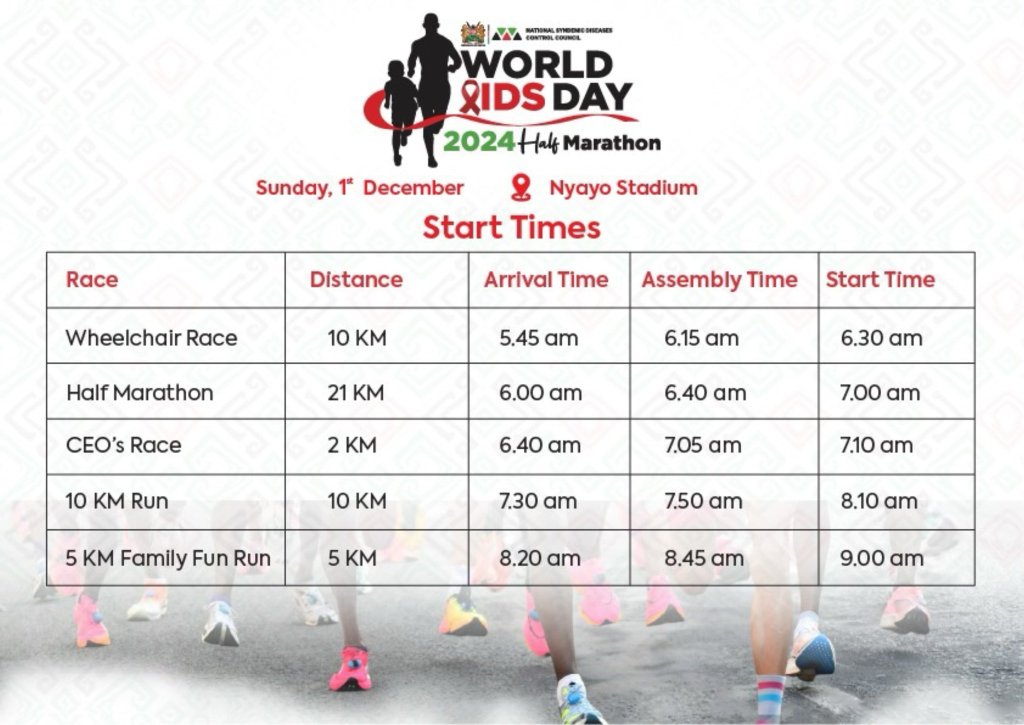Kenya on Sunday joined the rest of the world in marking World AIDS Day 2024, with a half marathon being the highlight of the day.
The marathon, organised by the National Syndemic Disease Control Council (NSDCC), featured five races: the Wheelchair Race, Half Marathon, CEO’s Race, 10 km Run, and 5 km Family Fun Run.
All the races aimed to promote the health and well-being of men and boys living with HIV.
The main focus of the event was to raise awareness and unite communities in the urgent fight against HIV/AIDS, reinforcing the global objective to end AIDS by 2030.

This includes advocating for early diagnosis and treatment to reduce AIDS-related deaths in this demographic, which currently includes approximately 487,710 individuals.
A section of key Nairobi roads was temporarily closed for the races, which started at Nyayo Stadium and continued to Museum Hill via Uhuru Highway, Kenyatta Avenue, Koinange Street, Muindi Mbigu Street, Wabera Street, Taifa Road, Harambee Avenue, Parliament Road, and Haile Selassie Street.
Other affected roads included Lower and Upper Hill Roads, Marathon Road, Ragati Road, Hospital Road, Elgon Road, Mtumbato Road, Masaba Road, Wakuhuri Road, Bunyala Road, Commercial Street, Enterprise Road, Dar es Salaam Road, Dunga Road, Lusaka Road, and Aerodrome Road.
“The public is requested to utilize alternative routes as guided by police and traffic marshals and to plan for this disruption,” said the Kenya Urban Roads Authority (KURA).

Kenya has made significant strides in recent years, including an 83% reduction in new HIV infections, from 101,560 in 2013 to 16,752 in 2023.
The number of people receiving antiretroviral therapy has nearly doubled to 1,336,681, while AIDS-related deaths have dropped by 65% over the same period.
However, Health Cabinet Secretary Dr Deborah Barasa notes that challenges persist, particularly in addressing the needs of children, adolescents, and young men, who face a triple threat of HIV, early pregnancies, and gender-based violence.







